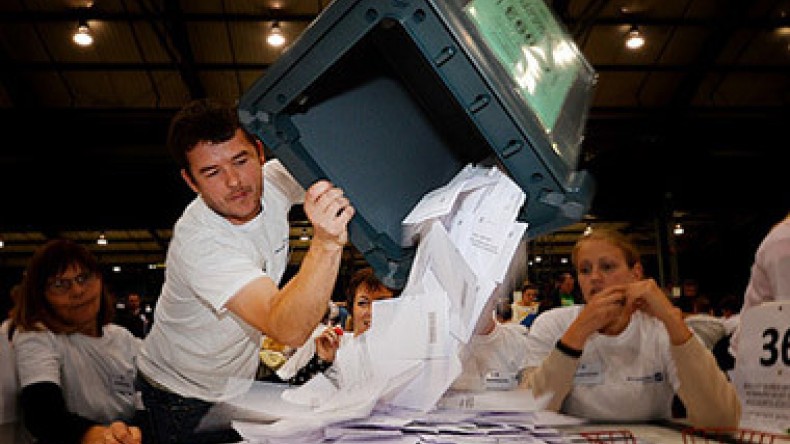
It’s not over: ‘Scots to hold a referendum in future’
The 'no' result in Scotland mostly resulted from fear of the consequences of secession, although the knock-on effect will be considerable for Catalonia, defense analyst Dr. Binoy Kampmark told RT.
RT: The 'Better Together' campaign won. Will independence supporters make another attempt to separate?
Binoy Kampmark: I do think that the voting outcome has indicated that there was a considerable interest in the movement and that the campaign run by Alex Salmond was quite professional and quite remarkable in many ways. To a larger extent, the “better together” campaign was quite mad… complacency on the one hand, and on the other hand, the degree of fear for consequences that might arise from the secession. So I do think that this is not by any means over, and it will probably go to a vote at some point in the future again.
RT: Why do you think the NO campaign appears to have swayed more voters?
BK: It seems to be the last minute thing or of the last couple of days. One of the issues was the increased interest by politicians in London and certainly the “better together” campaign they woke up to the shock that YouGov polls were showing that the “yes” campaign seemed to be edging them slightly out. So there was a certain urgency and suddenly we had every notable figure from Downing Street and White Hall talking about the implications of secession. That was largely one of the shocks that triggered greater interest because until then essentially the “better together” campaign just thought that they had it in the bag.
RT: Will other independence movements across Europe be bolstered by Scotland's example?
BK: It’s a very important point that this particular experiment in democracy and secession demonstrates that there is a lot of interest in this. There were certainly quite a few Catalonian observers in this particular case to see what things they could learn from the campaign. And this is certainly one of the reasons why Spain has been on public record as being against Scottish secession because the knock-on effect will still be considerable and may still be considerable. We have yet to see the implications of the vote in a broader European sense but no doubt other groups have taken considerable heart that a campaign like this can be run very professionally and remarkably well, which suggests a lot about the skills of individuals such as Salmond.
RT: What regions across Europe have a realistic chance of independence?
BK: It’s a good question. We already had a vote in fact, which is a non-binding one in the Veneto area in Italy, we will also have one coming up in November with Catalonia. So we have areas where there are non-binding decisions and in terms of non-binding referendum. There is certainly some interest that is going to be expressed, but unfortunately it is not like the Scottish case where there is actually an instance where people did go with the possibility of a binding vote. It remains to be seen where we go from there.
Newsfeed
Videos






























